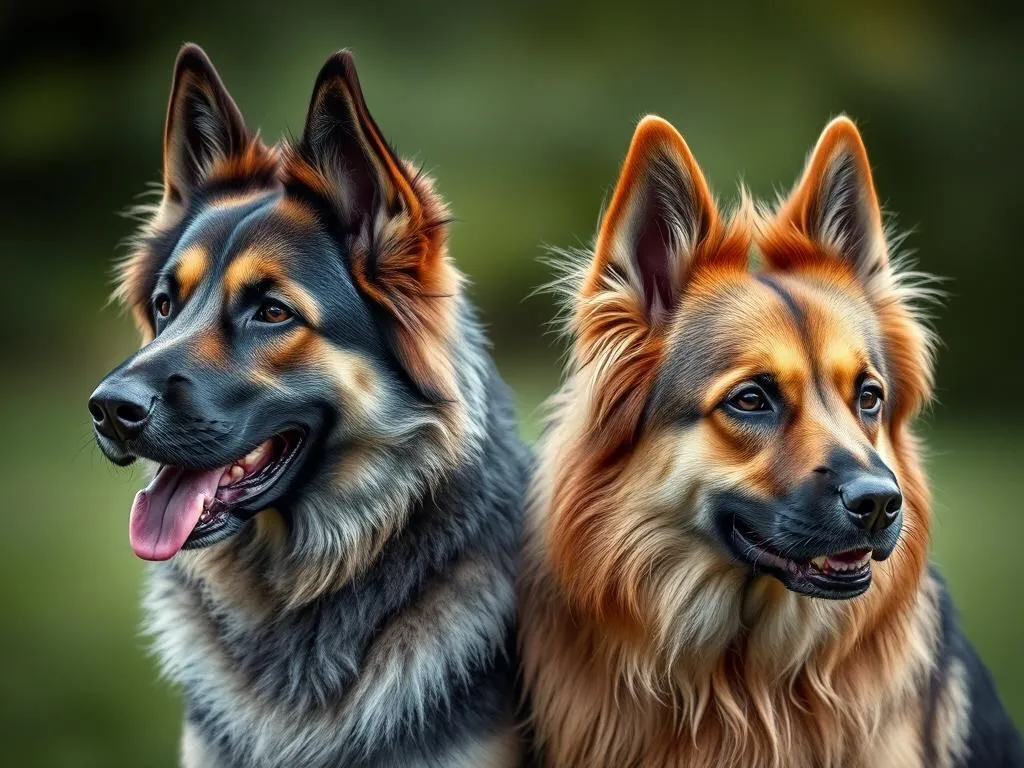
Introduction
German dog breeds are renowned worldwide for their versatility, intelligence, and loyalty. These breeds have originated from Germany and have gained immense popularity across various roles such as working dogs, service dogs, and loving family companions. Understanding the unique characteristics of each breed is crucial for anyone considering adding a dog to their family. Knowing the traits, needs, and capabilities of different breeds can significantly influence the choice of a suitable pet.
History of German Dog Breeds
Origins of Dog Breeding in Germany
The history of German dog breeds dates back centuries, with early breeding practices influenced by various factors, including the need for specific working qualities. The development of these breeds was often shaped by the demands of society, including agriculture, protection, and companionship. Early German herders and farmers began selectively breeding dogs that exhibited desirable traits such as intelligence, strength, and loyalty.
Key historical events, such as the establishment of breed clubs in the late 19th century, played a significant role in formalizing breed standards. The German Shepherd, for instance, was developed by Max von Stephanitz in the 1890s, who aimed to create an ideal working dog for herding and protection.
Cultural Significance
German culture has greatly influenced the development of its dog breeds. The close bond between humans and dogs has been a part of German history, with various artists and writers celebrating this relationship. Notable figures in dog breeding include von Stephanitz and the founders of the SV (Society for the German Shepherd Dog), who were instrumental in defining breed standards and promoting responsible breeding practices.
Popular German Dog Breeds
German Shepherd
The German Shepherd is perhaps the most recognized breed from Germany, celebrated for its intelligence and versatility. This breed is often used in police and military work, as well as in search and rescue operations. German Shepherds are known for their loyalty, courage, and trainability, making them excellent family pets as well.
Rottweiler
The Rottweiler is a powerful and confident breed that has often been misunderstood due to its imposing appearance. While they can be protective, Rottweilers are also known for their affectionate nature toward their families. With proper training and socialization, they can be gentle companions and excellent family dogs.
Doberman Pinscher
The Doberman Pinscher is an energetic and alert breed that is known for its loyalty and protective instincts. Dobermans are highly trainable and excel in obedience and agility sports. They are also great family pets, provided they receive ample exercise and mental stimulation.
Boxer
Boxers are playful, energetic, and affectionate dogs that make wonderful companions. Known for their boundless enthusiasm, Boxers are great with children and thrive on social interaction. However, they can be prone to certain health issues, so regular vet check-ups and a good training routine are essential.
Schnauzer (Miniature, Standard, and Giant)
The Schnauzer comes in three distinct sizes: Miniature, Standard, and Giant. Each size has unique traits, but all Schnauzers are known for their distinctive bearded snouts and lively personalities. They are intelligent, alert, and make fantastic family pets, often forming strong bonds with their owners.
Weimaraner
The Weimaraner is a sleek and athletic breed with a strong hunting background. Known for their loyalty and affectionate nature, Weimaraners thrive in active households. They require regular exercise and mental challenges to keep them happy and healthy, making them ideal for families that enjoy outdoor activities.
German Shorthaired Pointer
The German Shorthaired Pointer is a versatile and energetic breed, known for its exceptional hunting abilities. They are friendly, intelligent, and require plenty of exercise. This breed is often described as an ideal companion for active families who enjoy outdoor adventures.
Characteristics of German Dog Breeds
Physical Traits
German dog breeds exhibit a variety of physical characteristics, but many share common features such as strong, muscular builds and well-defined structures. Sizes range from the compact Miniature Schnauzer to the robust Rottweiler. Common coat types include short, dense fur, with colors varying from solid black to a range of browns, grays, and spotted patterns.
Temperament and Behavior
The general temperament of German dog breeds is characterized by intelligence, loyalty, and trainability. Most breeds are eager to please their owners, making training a rewarding experience. These dogs often form strong bonds with their families and can be protective of their loved ones, showcasing their loyalty and affection.
Health Considerations
While many German dog breeds are generally healthy, they can be prone to certain health issues. Common concerns include hip dysplasia, heart conditions, and specific breed-related ailments. Regular veterinary visits and preventive care are essential to ensure the long-term health of these breeds.
Training and Care for German Dog Breeds
Basic Training Tips
Training is a crucial aspect of owning a German dog breed. Early socialization is vital to ensure they grow into well-adjusted adults. Positive reinforcement techniques work best, as these breeds respond well to praise and rewards. Consistency and patience during training will lead to success, particularly for more stubborn breeds like the Rottweiler.
Exercise and Activity Needs
Most German dog breeds have high energy levels and require regular exercise. Activities such as daily walks, play sessions, and mental stimulation through puzzle toys or training exercises are essential to keep them content. Breeds like the Weimaraner and German Shorthaired Pointer thrive in active environments and need plenty of opportunities to burn off energy.
Nutrition and Diet
Nutrition plays a significant role in the health of German dog breeds. Providing a high-quality diet tailored to their specific needs is essential. Owners should consult with veterinarians to determine the best dietary plan, considering factors such as age, size, and activity levels. Regular meal schedules and monitoring for any food sensitivities can contribute to a dog’s overall well-being.
Choosing the Right German Dog Breed
Assessing Lifestyle Compatibility
When considering a German dog breed, it’s essential to assess lifestyle compatibility. Factors such as available space, daily activity levels, and family dynamics play a significant role in determining which breed may be the best fit. For instance, a high-energy breed like the German Shepherd may not suit a family with a sedentary lifestyle.
Adoption vs. Breeder
Choosing between adoption from shelters and purchasing from breeders is a significant decision. Both options come with their pros and cons. Adopting can save a life and often comes at a lower cost, while purchasing from a reputable breeder ensures the health and lineage of the dog. It’s essential to research and consider what aligns best with your values and lifestyle.
Key Questions to Ask Before Getting a Dog
Before bringing home a German dog breed, potential owners should ask themselves several questions, including:
– What is my daily schedule like?
– How much time can I dedicate to training and exercise?
– Do I have children or other pets?
– What are my long-term plans for the dog?
– Am I prepared for the financial responsibilities of dog ownership?
Myths and Misconceptions about German Dog Breeds
Common Misunderstandings
Several myths surround German dog breeds, often stemming from stereotypes and misinformation. For example, Rottweilers are frequently labeled as aggressive, while German Shepherds are sometimes seen as overly protective. These misconceptions can lead to unwarranted fear and misunderstandings about these loyal and loving breeds.
Setting the Record Straight
It’s crucial to dispel these myths with factual information. While individual dogs may vary, the majority of German dog breeds are friendly and affectionate with proper training and socialization. Responsible ownership and understanding of each breed’s unique traits can significantly counteract these misconceptions.
Conclusion
In summary, German dog breeds offer a wide range of characteristics, making them excellent companions for many families. From the intelligent and loyal German Shepherd to the playful Boxer, each breed has unique traits that can suit different lifestyles and preferences. Understanding these characteristics and the responsibilities of dog ownership is vital for anyone considering adding a German dog to their family.
Being informed and prepared is the key to fostering a healthy, loving relationship with your future canine companion.









